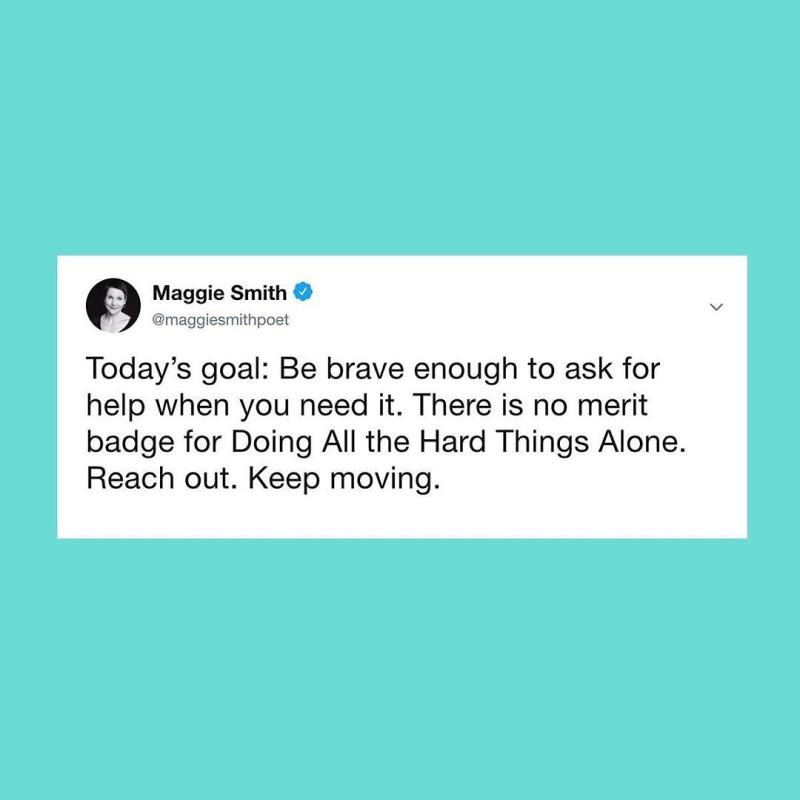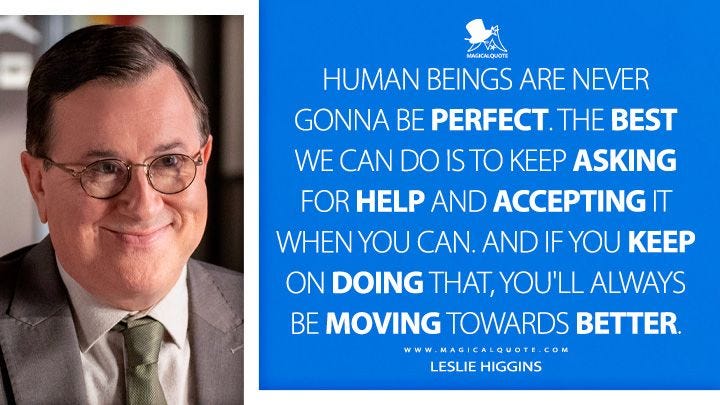🗞️ Issue #50: You think you know how to build products until you realize you don't
And why asking for help is an integral part of growth but we often don't want to do it
👋 Hola friends! Thank you for opening my email! I appreciate it ❤️
I’m Kax and welcome to my newsletter where I write about enjoying a career in Product Management, becoming your favorite version of a Product Leader, building a Startup, and all the human mess in between.
In this issue, I’m sharing
BTS building Magical Audios: Realizing how much I didn’t know about building products
The importance of asking for help and the role it plays in our personal growth
Why we shy away from asking for help and how to normalize the action
1️⃣ You think you know how to build products, until you realize you don't. And that’s ok!
If you’re following me on Linkedin or Instagram then you’ve seen how exciting the last few weeks have been for us over at Magical Audios!
We recently launched a program to help people overcome their burnout in 7 days!
And we’ve been getting amazing feedback for it. As a Product person by trade and training, all this feedback has me giddy!
But the road to get here was paved with “WTF am I doing?!” 😂
I thought I knew how to build products since I’ve been actively building products since 2010! But building Magical Audios has been telling me otherwise. 🫠
When you’re not surrounded by cross-functional experts - no designer, no developer, no data person, and no budget… building products is suddenly 100x harder.
So what do I do? I try to do everything myself (or most of it).
One example is the design of the Magical Audios website.
Honestly, I’m very very very very proud of the work I did there. And I learned so much from the process.
But if you ask my designer friends what they thought about it, it would be, “Yikes!” but delivered more politely. 😂 Which was closely followed by “Why didn’t you ask me for help?”
Good question. Looking back, if I were to do things all over again, I would ask for help early on. So why didn’t I?
Reason #1: The one about the budget
Practical reason. We didn’t have the budget to hire somebody to help us, specifically a designer. What little budget we had, we already spent on hiring a designer/developer to help us set up the audio player part of Magical Audios and to pay for the services we had to subscribe to, to be operational.
If we wanted to hire a designer, we had to reach deep into our pockets. An option we were reserving for emergencies. This didn’t feel like an emergency.
Reason #2: The one about the learning
Learning reason. I wanted to learn what works, how to set things up, and how to work around the platforms we were using.
I felt that as a founder, I needed to understand how things worked under the hood. And while I knew the principles having worked with cross-functional experts before, I felt it was important to go deeper. Founder mode 💅
Also I hated realizing that I’m incapacitated without any design and engineering support.
Reason #3: The one reason to rule them all
Ego reason. My partner is a designer, developer, product manager all-in-one and we used to work together as a PM-UX powerhouse. One of my closest friends from work is also a designer. My best-friend’s husband is a designer.
Budget, at least when it came to design, was not a real constraint.
And if I insist that it was for learning purposes, I could also just ask them for feedback so I can learn from experts while still doing the work on my own.
I could easily ask for help from all these experts for free. Except I didn’t because I was afraid of looking like an idiot (a thought that is idiotic on its own).
I didn’t want to ask for help because I THOUGHT that with my background and experience building far more complicated experiences - I should know how to do “this” already.
EGO got in the way. And it cost me and Magical Audios so much time, effort, and possibly results. A cost that could have been avoided if I didn’t look at asking for help as a sign of weakness.
🧠 Why we don’t ask for help?
Unfortunately, my story is not unique. A lot of us pass on asking for help, including my coaching clients for a whole lot of reasons.
The benefits of asking for help are widely known but it’s worth repeating here briefly for the sake of argument:
Asking for help brings in diverse perspectives and expertise, leading to better and more innovative solutions. When doing things alone, we often miss out on valuable insights and more effective ideas.
Asking for help allows us to learn from others' experiences and knowledge, accelerating personal and professional growth.
Asking for help can reduce workload pressure, prevent burnout, and improve mental health.
So why don’t we? These are the top 3 reasons I hear from my clients all the time (and the one I wrestle with in my brain).
Fear of Appearing Incompetent or Weak
Many of us are worried that if we ask for help, it will make us look less capable, less experienced, or less qualified in the roles we are in. We want to prove ourselves, so we equate asking for help as a reflection of a gap in our capabilities.
And the impact? Unnecessary prolonged struggles and decreased productivity are definitely top the impact list - as we focus on the things that may not be important, and we miss opportunities for accelerated learning and collaboration!
Fear of Losing Control
Some people equate asking for help with losing control over a situation, task, or project. A common concern when asking for help requires handing over the topic to a different person. This may trigger worries that things won’t be done according to their preference or that involving others could complicate the process.
And the impact? This fear may lead to burnout as our need to control everything may result in taking on more things than we need to.
Belief That Help is Unavailable or Will Be Rejected
A belief that stems from trying to impose a narrative on another person or predict their responses. This may be rooted in past experiences when we did dare to ask for help but kept getting shut down.
And the impact? This belief can encourage isolation and extreme self-reliance. Which may create a cycle where we shy away from seeking support, which may lead to overwhelm, and eventually burnout.
If we zoom out, all of these fears are coming from trying to predict an outcome that is so volatile and dependent on another person’s context. And in some cases, we’re projecting to them our fears that may not be completely aligned with who they are.
If you need help and don’t know where you can get it, let’s chat!
🌱 How can we change this?
As with most things, changing one’s mindset and building a habit is necessary to normalize the act of asking for help and reap the rewards that come with it. Here are some things to start with:
Reframe asking for help positively - Instead of seeing asking for help as a lack, there are many positive spins we can employ instead. For example, seeing asking for help as being proactive, resourceful, and actively seeking learning.
Ask for help from people you trust - Asking for help from people who will not be the judgemental, who are reliable, and who are likely to set aside time and space to provide help can ease the fears that we might have surrounding the act itself. Asking for help can feel safer.
Start small - Asking for help is a skill. And like all skills it needs practice and iteration. Think of it as practicing yoga - when you’re just starting, you don’t go immediately to inversions or poses that require strength and muscles you don’t have yet. It’s the same as asking for help. Starting with asking for help for small stakes topic can normalize the action and build confidence around it.
❓What does this have to do with not knowing how to build products?
Us Product People are going find ourselves in new and different contexts all of the time. Often in the form of:
Switching jobs where we will be face to face with different team, product, scope, or domain!
Building our own product as a startup founder where we will be without the support we used to have when we were in an organized team.
And when we find ourselves in these new situations, wherein our usual processes don’t apply anymore, we end up thinking:
I should know how to do this
Even if we don’t. And it’s completely ok not to! In fact, it’s expected.
There are multiple ways to build products and create value. Because there are multiple tools, technology, etc that are used by different organizations. Or none, like in the case of our startup.
Isn’t that amazing? So many opportunities to learn new things and grow!
But it’s ironic that we want to change roles or scope because we want to be challenged more - and being challenged more means to do something new, and yet we expect ourselves to already know how to do it.
It’s also counter intuitive. For example, when we’re onboarding in a new role, we want to have an impact as soon as possible. And asking for help can shorten the time between learning the ropes and having an impact - but we still don’t want to.
There are no rules to learning.
Learning by ourselves does not give us a medal.
Nor does learning by asking for help make our achievements afterwards less valid.
🤓 TL;DR
Asking for help is often the shortest path between two points: where you are and where you want to be.
But we don’t take advantage of the support system we have around us as much as we should, because we’re afraid of a worst case scenario that is unlikely to happen.
Asking for help is important. It opens us up to new perspectives, new ideas, and new ways of doing things. And increasing the likelihood of positive results.
But if asking for help feels icky and something you hesitate on doing check your mindset. Do you see it as a weakness or a threat? Normalize the action by starting with asking for help from people you trust and feel safe with.
So when you find yourself in a situation wherein:
You’re not sure what to do or how to get started
You tried but the outcome isn’t as what you expected
And you feel like an idiot because you feel like you should know how to do “this” already but you don’t — take a deep breath and repeat after me:
You’re not supposed to know! You’re in a growth space so you’re naturally going to be faced with new things that you need to figure out.
But you don’t need to figure things out on your own. Ask for help.
This is a long-winded way of saying, we’re redesigning the Magical Audios website! And we can’t wait for you to see it. In the meantime, here’s a help Magical Audios is offering, if you’re going through burnout or are about to - check out our 7-day program to overcome your burnout.
2️⃣ 5 Things That I Loved This Week
🗞️ chhavi ‘s latest newsletter about her first signs of burnout and how she addressed them.
🛠️ For those in Barcelona, my friend Maria Pelaez is hosting a workshop: Generative AI for Project Managers (I’m going! say hi if you’re there!)
🆘 Kill Burnout in 7 days by Magical Audios (use the code: MAGIC15 for 15% OFF)
👩🏻💻 Hi I’m Kax! And I offer support through 1:1 coaching. I typically work with experienced Product Managers, aspiring Product Leaders, and Women in Tech to help them achieve their operational and career goals while still enjoying their work and without compromising their well-being.
Here are some topics that I usually work on with my clients:
Creating their personal operating system and designing a relevant strategy to successfully deliver impactful products and get the reward and recognition that they deserve
Strengthening their presence in their organization to influence stakeholder decisions and company strategies
Successfully transition from Individual Contributor to Product Leadership
Confidently navigate the challenges that come with being a new a Product Leader from designing organization, managing and coaching your team, and balancing your workload to avoid burnout
Identifying and pursuing their next best steps that are fully aligned with their ambitions, preferences, and values.
If you’re interested, you can learn more about working with me.
And If you reached the end of this issue, I’d love to read your thoughts, feelings, and violent reactions in the comments. 🫶
💙
Kax









always inspiring how you embrace vulnerability in this newsletter. personally I know how scary it is to put them out but you always inspire me. also, thank you for the shoutout!